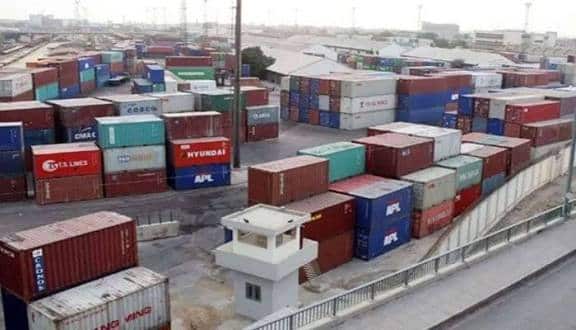The ongoing border clashes between Pakistan and Afghanistan have caused serious disruptions in trade, leaving hundreds of containers stuck at Karachi and Bin Qasim ports.
This situation is resulting in nearly Rs. 1 billion in daily losses, creating major difficulties for traders and businesses on both sides of the border.
According to Pak-Afghan Chamber President Junaid Makda, over 1,000 containers are currently stranded at key border points, including Torkham, Chaman, and Ghulam Khan.
These delays have led to large backlogs, with goods unable to move forward. The continuous tension and lack of coordination between both sides have only made the crisis worse.
The Federal Board of Revenue (FBR) has also suspended the Afghan Transit Trade, which has added to the problem.
Because of this, many perishable goods such as fruits and vegetables are being sold at half their price to prevent them from going to waste. Warehouses are now overflowing, and traders are struggling to bear extra storage and transportation costs.
The goods stuck in transit include electronics, medicines, textiles, and food items—products that are important for both countries. This disruption has affected supply chains, reduced trade activity, and increased financial pressure on importers and exporters.
If the situation continues, it could have long-term effects on regional trade and economic growth. Business leaders are urging both governments to act quickly, restore cross-border movement, and ensure the smooth flow of goods to prevent further financial damage.


